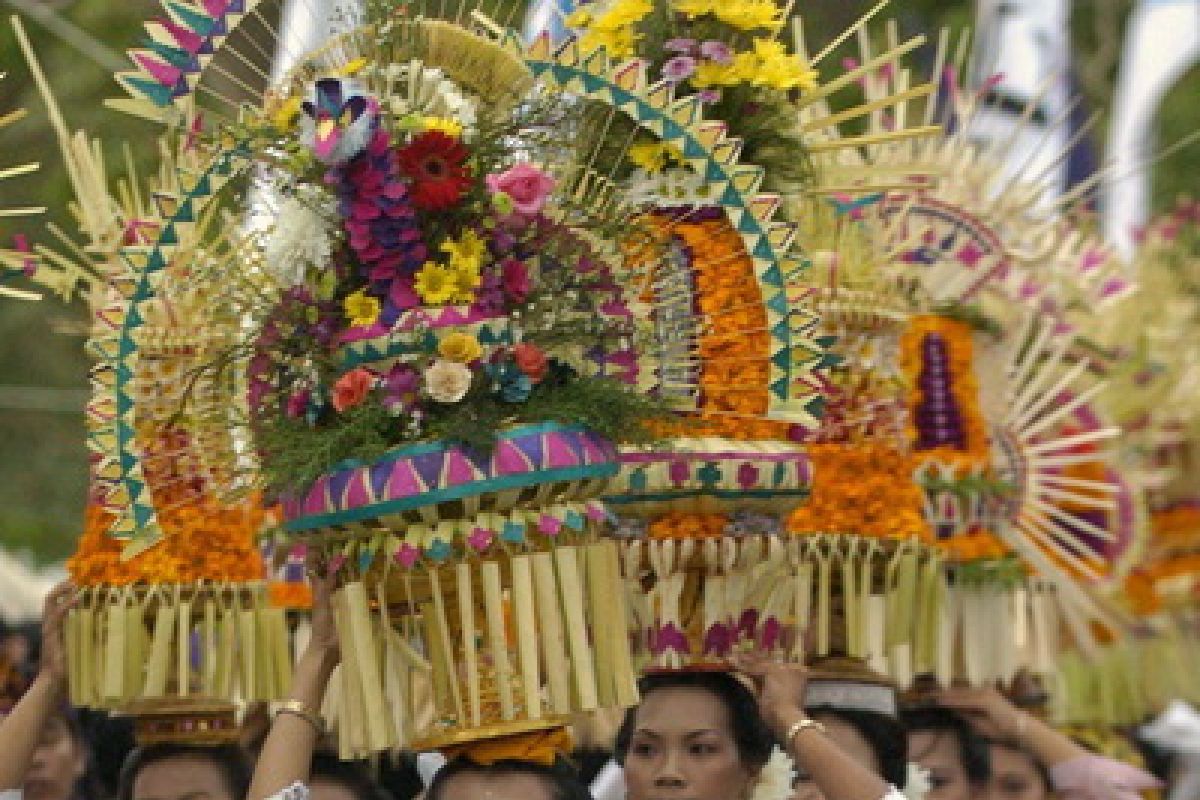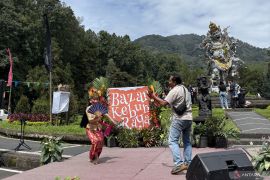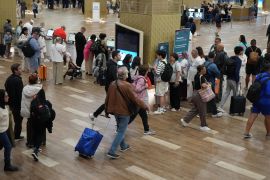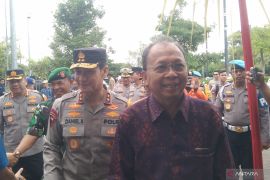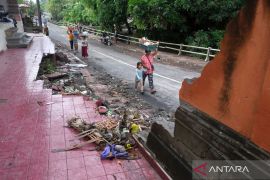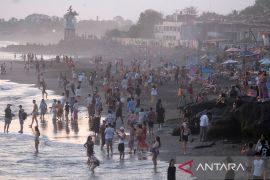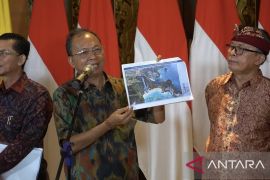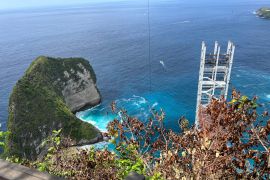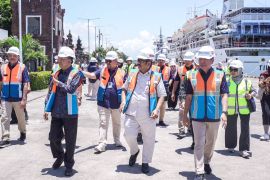Actually, there is nothing wrong with Bali`s tourism development, yet in practice, tourism in the province is still seen, in general, as a `monster` by the people of Bali, Prof Dr I Wayan Windia of the Denasar-based Udayana University, said.Jakarta (ANTARA News) - Tourism development in Bali, Indonesia`s primary tourism province which contributes some 30 percent to the country`s tourism revenues, has not yet fully benefited its local residents.
"The visits of foreign tourists and domestic visitors, which continue to increase every year, have not yet improved the welfare of all people in Bali," Prof Dr I Wayan Windia of the Denasar-based Udayana Universiy, said on Thursday.
This is because the development of tourism in Bali is not yet fully aimed at helping the local people. Some 2.6 million foreign tourists from various countries, and about five million domestic tourists, visit the province annually.
This tends to marginalize the agricultural sector, which is the backbone of the local people`s economy. Thus, those relying on the agricultural sector remain poor.
Bali`s population agency in 2009, for example, documented how 215,700 out of the total 3.5 million inhabitants are still living below the poverty line. Per capita income in Bali only reaches Rp12 million (US$1,200).
"There is still a wide wealth disparity among districts. The tourism industry flourishes only in the southern part of Bali, leaving other districts underdeveloped," Bali Governor Made Mangku Pastika was recently quoted by the Jakarta Post as saying.
Although Bali has been declared one of the world`s most famous tourist destinations, the province has to work hard to upgrade its infrastructure and other supporting facilities.
Further, the rapid development of hotels, villas, and shop houses, locally known as rukos, has threatened the island`s environment.
According to Uniting World media online, while Bali is well known as a tourist destination, there is considerable poverty in rural villages away from the tourist areas. Balinese culture is strongly patriarchal, so the impact on women in poor communities is particularly great.
Local government receives funding to assist poor people with housing, electricity, water and other basic services. However, the voice of the poorest, especially women, is sometimes not heard in village-based planning meetings.
Prof. I Wayan Windia said tourism development is a capitalistic activity which theoretically tended to marginalize weak people from tourist resort areas.
He added that Bali is a tourist resort province where tourism is rapidly developing, and is visited each year by 2.6 million foreign and five million domestic tourists.
Therefore, he questioned the government`s efforts to realize the ideal of equitable distribution of the benefits of tourism development for the welfare of the people who were the object, as well as the subject, of tourism development.
This, he said, is important for building a sense of unity and of forging diversity, as part of the efforts to foster the people`s identity.
Actually, there is nothing wrong with Bali`s tourism development, yet, he said, in practice, tourism in the province is still seen, in general, as a `monster` by the people of Bali.
"The Bali people are questioning whether or not it is right for Bali to maintain its cultural tourism concept as a tourist destination," the professor asserted.
He argued that cultural tourism in Bali failed to bring equitable and structural distribution of tourism benefits to the people, while he echo of tourism development did not touch and involve players who perpetuate culture in society.
He explained that the results of the tourism development sector in Bali had not yet holistically reflected the realization of Bali`s cultural tourism development, which should serve as a reference to improving and raising the people`s welfare standard.
Therefore, Bali Governor Made Mangku Pastika, some time ago, urged the central government to allocate to the province a large portion of the national tourism revenue, since it contributed more than 30 percent of the total income.
"We don`t have natural resources. Tourism is the island`s major source of income," Pastika said. In 2008, for example, about 1.9 million tourists visited the island, spending an average of $1,000 per visit.
"This revenue excludes the income from visa on arrival fees," Pastika said. He added that Bali generated around US$2 billion to US$3 billion per year from its tourism and hospitality industry.
In order to improve the welfare of the people in Bali, President Susilo Bambang Yudhoyono, during a meeting in Bali last week, called for improvements in the economic program in Bali.
He made the appeal while opening a coordination meeting being held to evaluate the government`s master plan on the acceleration and expansion of Indonesia`s economic development (MP3EI) in Bali, West Nusa Tenggara and East Nusa Tenggara.
The MP3EI economic development program is a government endeavor that is expected to trigger growth in Indonesia and, in the long run, make the country one of the top five global economies by 2025.
"Economic development through the MP3EI program, if successful, will certainly have a positive impact on the reduction of poverty. The program calls for commitment to addressing poverty at the regional level, as well as support of the national program," he said.
The MP3EI program mainly focuses on infrastructure development in six corridors spread across the archipelago, including Sumatra, Java, Kalimantan, Sulawesi, Bali, Nusa Tenggara and Papua, Maluku.
Under the MP3EI program, Bali and Nusa Tenggara fall into Corridor V.(*)
Reporter: Andi abdussalam
Editor: Heru Purwanto
Copyright © ANTARA 2012
